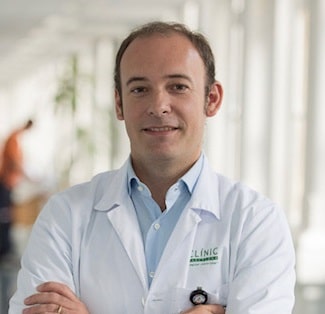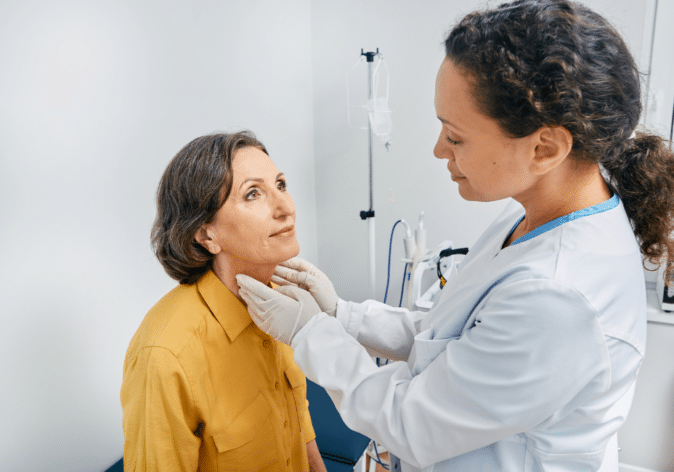Cancer Biomarkers In HER2+ Early Breast Cancer
One of the best ways to diagnose breast cancer early, aid in treatment decisions or predict treatment response is to use cancer biomarkers.
A biomarker is a substance in a person’s blood, urine or other body fluids. It can also be found in or on the tumour, that is produced by the cancer tissue itself or by other cells in the body in response to cancer.
Researchers use biomarkers to provide insights into a patients’ individual cancer.
HER2 positive early breast cancer molecular biomarkers are a research area for Associate Professor Aleix Prat.
Associate Professor Prat is the Head of Medical Oncology at the Hospital Clinic of Barcelona in Spain and was an international guest speaker at the latest Breast Cancer Trials Annual Scientific Meeting.
Associate Professor Prat said investigating HER2 positive early breast cancer is important as it can become an aggressive disease if left untreated.
“HER2 positive disease represents around 20% of all breast cancers.”
“One out of five women develop this type of disease,” he said.
“We know that we are, on one hand, over-treating some patients, and on the other hand, we are under treating some patients.”
“So, we need biomarkers.”
He said researchers are working on ways to identify the different groups of patients within HER2 positive disease.
“Today we have several tests, several biomarkers, that are starting to subdivide this group of patients.”
One example of this is molecular sub-types.
“This is a biomarker of 50 genes that help us to divide HER2 positive disease into four different groups,” said Associate Professor Prat.
“Today, we have substantial evidence that these different groups behave differently and respond differently to the standard of care.”
“In particular, there is one group of patients with this biomarker, that seem to benefit a lot from drugs that target the HER2. So, this is the group of patients that potentially in the future, if we do the right clinical trials, we might be able to get rid of chemotherapy.”
However more clinical studies need to be conducted before this can become standard practice.
Listen to the podcast
HER2 positive early breast cancer molecular biomarkers are a research area for Associate Professor Aleix Prat. Find out more about A/Professor Prat’s research on this BCT podcast.
Immunotherapy In Breast Cancer
Another biomarker is the immune system according to Associate Professor Prat.
“We know that there is a substantial proportion of patients that have HER2 positive tumours, and these tumours are inflamed, they have a lot of cells that come from our own immune system, that are there, detecting the cancer and are trying to fight.”
“They are not winning, because if they win, there’s no cancer.”
“So that population of patients have a better survival. So, potentially this bio-marker could help us to de-escalate therapy because they have a better outcome.”
“At the same time, these are a group of patients that either they don’t respond as we want, therefore immunotherapy in the future could be a strategy to pursue.”
Immunotherapy is an expanding field in breast cancer research. Breast Cancer Trials currently has two immunotherapy clinical trials open – CHARIOT and DIAmOND.
HER2 Positive Breast Cancer Clinical Trials
Associate Professor Prat said thanks to tumour samples, they have been able to design a clinical trial to de-escalate chemotherapy treatment for patients with HER2 positive disease with specific molecular subtypes.
He said they can potentially treat these patients with three months of one chemotherapy treatment together with anti-bodies against HER2 disease, instead of six months of chemotherapy.
Another area of de-escalation is in breast cancer surgery.
“We are about to open a study in Barcelona, at my centre,” said Associate Professor Prat.
“It’s a pilot study because we want to go slowly into that direction, where we will select patients with HER2 positive and with a particular biomarker, the molecular subtype and show that if we treat them with standard therapy and if they have an excellent response by MRI and biopsy, we are not going to perform surgery.”
“This is going to be a study of only 18 patients but it’s just a way to start opening that door, which is to de-escalate surgery.”
He said there is a similar trial currently being run in the US in HER2 positive, triple negative disease.
“This is a multicentre trial that, if they achieve a response with MRI and a biopsy, they don’t undergo surgery. So, there’s already some trials going in that direction. So, I think it’s worth keeping an eye on those, and those results.”
Support Us
Help us to change lives through breast cancer clinical trials research




